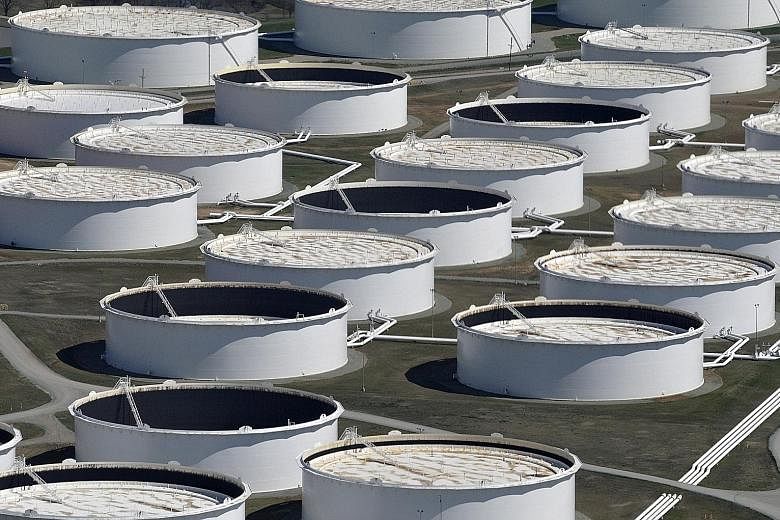Singapore and other regional markets head into December with a busy week, as investors shift their focus to key events - Brexit, US and China economic data releases, an Opec meeting - beyond the G-20 summit.
After a highly anticipated dinner at the sidelines of the G-20, China's Xi Jinping and US' Donald Trump reportedly agreed to put on hold new tariff increases for 90 days, marking a significant de-escalation in trade tensions between the world's two biggest economies.
Mr Aninda Mitra, senior sovereign analyst at BNY Mellon Investment Management in Singapore, said: "I would see this is as a short-term risk-positive development and safe havens should under-perform in coming days - the markets will be elated."
However, he is concerned that at the end of the truce, the US will go back to "feeling aggrieved at any meaningful and structural promises from the Chinese falling short yet again, and the Chinese feeling short-changed that the US pockets the tactical concessions and does not make much effort to understand its different development model, which limits the degree to which it can totally alter its growth model simply to satisfy the United States".
With G-20 out of the picture, markets turn their attention to other concerns in the week ahead. Chief among them is the Vienna meeting between Opec and its main partner Russia on Thursday and Friday, which is seen as a significant event for downcast oil markets plagued by global supply outpacing demand.
Over the weekend, Reuters reported that US crude plunged 22 per cent in November, settling at US$50.93 for its weakest month in over 10 years. Market observers hope energy prices will rebound, if the Organisation of Petroleum Exporting Countries' committee does indeed agree to cut production by 1.3 million barrels per day from last month's levels, as Bloomberg said.
DBS Group Research analysts Suvro Sarkar and Ho Pei Hwa expect oil prices to stay volatile in the lead up to the Opec meeting. "The weaker oil price sentiment will inevitably plague the performance of oil and gas stocks, especially the upstream exploration and production or E&P players. The downstream refinery and petrochemical names tend to outperform pure E&P peers in current environment," they wrote.
In Europe, yet another minister resigned over the Brexit agreement, just before the United Kingdom's Parliament begins its week-long debate on the Brexit plan, proposed by Prime Minister Theresa May and endorsed by EU leaders, before lawmakers are scheduled to vote on the proposal on Dec 11.
Speaking before a bilateral meeting at the G-20 summit in Argentina, Japanese Prime Minister Shinzo Abe told Mrs May to avoid a no-deal Brexit, hinting that investors from Japan need predictability and stability.
Also on investors' radar are key US data releases throughout the week - the October trade, November labour market and manufacturing data, among others. UOB's global economics and markets research team wrote that Bloomberg consensus expects US wage growth to pick up, but an above-3 per cent year-on-year wage surprise could again jolt expectations for US inflation and Fed rate hikes.
Also, the US dollar has become hypersensitive to both external and domestic economic data releases, without what was thought to be the new norm of quarterly rate hikes to tether itself to, said Oanda Asia-Pacific head of trading Stephen Innes.
In China, the Caixin manufacturing purchasing managers' index, services PMI, November reserves and trade data releases are due. ING economist Iris Pang expects new export orders to keep contracting as long as the trade war continues.

